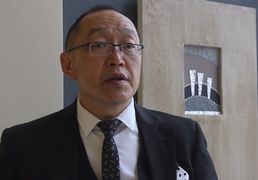THE state funeral of former president Nelson Mandela on Sunday was the one occasion where superlatives were trite and unnecessary.
His stature, along with the greatness of his achievements, make any means of marking Mandela’s death appear a mere shadow of the man.
His burial at the family farm near the rural hamlet of Qunu, about 30km from the only major town in the area, Mthatha, compounded the logistical challenges for the government, the family and the guests.
Infrastructure in the area can be considered basic at best, with most of it being under construction or having fallen into disrepair. The small airport just outside Mthatha could hardly cope with the increase in air traffic. Many of the VIP guests had to fly to East London and then take a two-hour journey to be in time for the funeral, which started at 7.30am sharp.
Adding to the logistical nightmare was the heavy rain that turned the normally dusty service roads into mud traps for the 18-wheeler trucks meant to bring in the equipment and materials to build the large dome that housed the 4,500 guests for the large ceremony before the much smaller graveyard service.
At one stage, construction of the dome, and the other facilities at Mthatha and East London airports, and at the media centre, fell about 18 hours behind schedule. Construction workers said a new road had to be built overnight to accommodate the trucks, and extra hands were employed to meet the tight schedule — and it was — but with just less than a day to spare.
The military took care of most of the arrangements, with about 12,000 troops deployed for ceremonial and security duties, while extra police men and women were also brought into Mthatha. The security arrangements appeared somewhat heavy-handed as this was Mandela’s home town and the overriding loyalty of the local people could never be in doubt.
The funeral service was as close as one could get to a mixture of a family event and a state occasion.
The speakers in the dome were well chosen, although they went on a bit too long, causing the final interment to run late and miss the noon deadline that is important in Xhosa tradition.
These included Ahmed Kathrada, Nandi Mandela, Ethiopian Prime Minister Hailemariam Desalegn, Malawian President Joyce Banda, Tanzania n President Jakaya Kikwete and former Zambian president Kenneth Kaunda.
While all of them recounted Mandela’s achievements, his strategies in dealing with the apartheid regime, and his love of life, the underlying theme was one of leadership. The comparison was not lost, as last week, at the main memorial event in Johannesburg, President Jacob Zuma found himself at the receiving end of heckling and booing by a crowd many thought was contrasting his legacy to Mandela’s. Mr Zuma was also the butt of many jokes by the ordinary people of Mthatha.
On Saturday, just before the passing of the funeral cortege, a praise singer, holding a shield in his left hand and a stick in his right, suddenly bust out into a long praise poem of Mandela.
He told how Mandela had risen to greatness, beaten his enemies, and how he would soon be united with his son in heaven.
Then the praise singer fell to the ground and delivered his punch line: "And his son is Jacob Zuma."
The punch line could mean Mr Zuma is Mandela’s natural successor, or it could easily mean, and the crowd seemed to think so, that Mr Zuma may not be long with us.
Under heavy guard, the funeral procession whizzed past the streets of Qunu. An old man was seen raising a tot of whisky in the direction of the convoy in silent toast.
Many were clear on why they felt Mandela had been a great man. "He opened up opportunities for everyone. If it were not for him I would probably be married somewhere in a rural area with five children to look after," a young woman reporter said.
Ahmed Kathrada made it clear in his funeral speech that Mandela was part of the African National Congress’s (ANC’s) A-team. This included people such as Oliver Tambo and Albert Luthuli, and even non-ANC members such as Helen Suzman and Steve Biko.
A resident of Mthatha said Mandela had lived a fruitful life. "Few people live to the age of 95 years. He had a good life, even if he lost some of it in prison. But his 23 years after prison, and even before it, were very productive."
The 10 days of mourning, the pomp and ceremony that surrounded the state funeral, and the outpouring of emotion reminds one of the ancient Greeks and their funeral games.
Legend has it that when Alexander the Great was on his deathbed and his generals asked to whom the crown should go, he replied: "I foresee a great contest at my funeral games".
Madiba’s funeral games will probably go on for some time and many will claim to be operating according to his ideals.
However, no one person will be able to fill his shoes.
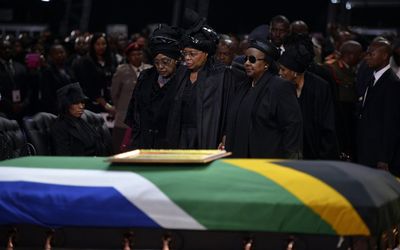
Nelson Mandela’s ex-wife Winnie Madikizela-Mandela (left) and widow Graca Machel (centre) during his funeral ceremony in Qunu on Sunday. Picture: REUTERS
THE state funeral of former president Nelson Mandela on Sunday was the one occasion where superlatives were trite and unnecessary.
His stature, along with the greatness of his achievements, make any means of marking Mandela’s death appear a mere shadow of the man.
His burial at the family farm near the rural hamlet of Qunu, about 30km from the only major town in the area, Mthatha, compounded the logistical challenges for the government, the family and the guests.
Infrastructure in the area can be considered basic at best, with most of it being under construction or having fallen into disrepair. The small airport just outside Mthatha could hardly cope with the increase in air traffic. Many of the VIP guests had to fly to East London and then take a two-hour journey to be in time for the funeral, which started at 7.30am sharp.
Adding to the logistical nightmare was the heavy rain that turned the normally dusty service roads into mud traps for the 18-wheeler trucks meant to bring in the equipment and materials to build the large dome that housed the 4,500 guests for the large ceremony before the much smaller graveyard service.
At one stage, construction of the dome, and the other facilities at Mthatha and East London airports, and at the media centre, fell about 18 hours behind schedule. Construction workers said a new road had to be built overnight to accommodate the trucks, and extra hands were employed to meet the tight schedule — and it was — but with just less than a day to spare.
The military took care of most of the arrangements, with about 12,000 troops deployed for ceremonial and security duties, while extra police men and women were also brought into Mthatha. The security arrangements appeared somewhat heavy-handed as this was Mandela’s home town and the overriding loyalty of the local people could never be in doubt.
The funeral service was as close as one could get to a mixture of a family event and a state occasion.
The speakers in the dome were well chosen, although they went on a bit too long, causing the final interment to run late and miss the noon deadline that is important in Xhosa tradition.
These included Ahmed Kathrada, Nandi Mandela, Ethiopian Prime Minister Hailemariam Desalegn, Malawian President Joyce Banda, Tanzania n President Jakaya Kikwete and former Zambian president Kenneth Kaunda.
While all of them recounted Mandela’s achievements, his strategies in dealing with the apartheid regime, and his love of life, the underlying theme was one of leadership. The comparison was not lost, as last week, at the main memorial event in Johannesburg, President Jacob Zuma found himself at the receiving end of heckling and booing by a crowd many thought was contrasting his legacy to Mandela’s. Mr Zuma was also the butt of many jokes by the ordinary people of Mthatha.
On Saturday, just before the passing of the funeral cortege, a praise singer, holding a shield in his left hand and a stick in his right, suddenly bust out into a long praise poem of Mandela.
He told how Mandela had risen to greatness, beaten his enemies, and how he would soon be united with his son in heaven.
Then the praise singer fell to the ground and delivered his punch line: "And his son is Jacob Zuma."
The punch line could mean Mr Zuma is Mandela’s natural successor, or it could easily mean, and the crowd seemed to think so, that Mr Zuma may not be long with us.
Under heavy guard, the funeral procession whizzed past the streets of Qunu. An old man was seen raising a tot of whisky in the direction of the convoy in silent toast.
Many were clear on why they felt Mandela had been a great man. "He opened up opportunities for everyone. If it were not for him I would probably be married somewhere in a rural area with five children to look after," a young woman reporter said.
Ahmed Kathrada made it clear in his funeral speech that Mandela was part of the African National Congress’s (ANC’s) A-team. This included people such as Oliver Tambo and Albert Luthuli, and even non-ANC members such as Helen Suzman and Steve Biko.
A resident of Mthatha said Mandela had lived a fruitful life. "Few people live to the age of 95 years. He had a good life, even if he lost some of it in prison. But his 23 years after prison, and even before it, were very productive."
The 10 days of mourning, the pomp and ceremony that surrounded the state funeral, and the outpouring of emotion reminds one of the ancient Greeks and their funeral games.
Legend has it that when Alexander the Great was on his deathbed and his generals asked to whom the crown should go, he replied: "I foresee a great contest at my funeral games".
Madiba’s funeral games will probably go on for some time and many will claim to be operating according to his ideals.
However, no one person will be able to fill his shoes.


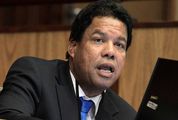

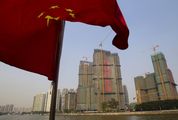



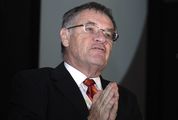
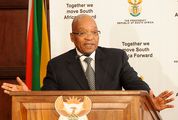

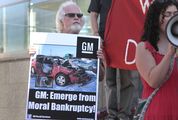
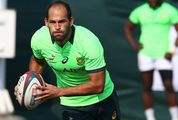

 News and views on the death, and life, of former president Nelson Mandela, with
tributes and photographs
News and views on the death, and life, of former president Nelson Mandela, with
tributes and photographs







